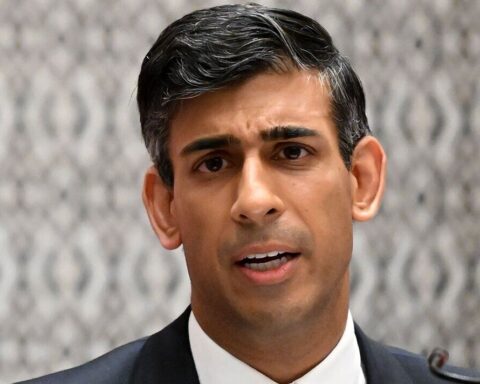LONDON (Parliament Politics Magazine) – One of Truss’ rival’s supporters believe that her plan to concentrate on tax cuts to address the cost of living – instead of targeted support for households with low income – might lead to people ending up on the streets.
The foreign secretary allegedly has to quit handing “the magic money tree” to her supporters in favour of focusing on how to assist those who are most in need, claimed Tory MP Kevin Hollinrake, who is backing Rishi Sunak in the contest to become the country’s next prime minister.
Speaking of tax cuts that would help a low income home to the tune of around £1 per week and still helping a household like his own to the tune of approximately £30 per week was simply not acceptable, he said in response to Kay Burley of Sky News.
These individuals would be out on the streets. For certain households, the situation was likely to be extremely bad. She needed to offer that targeted package of assistance.
As she prepares to hold a budget next month without an official economic prediction from the Office for Budget Responsibility (OBR), despite one being ready should she ask, Ms. Truss is being accused of attempting to “avoid independent scrutiny,” Mr. Hollinrake commented.
Having an emergency budget in September has been a crucial aspect of the front-campaign runner’s to occupy Number 10; in it, Ms. Truss plans to make long-term financing commitments if she is elected prime minister.
Moving without an OBR estimate, however, has been dubbed “worrying” by an economist and government financial specialist, and the group supporting Mr. Sunak has charged that she is trying to “avoid independent scrutiny.”
The former cabinet member and seasoned veteran Michael Gove has accused the foreign secretary of taking a “holiday from reality” because of what is viewed as a lack of clarity regarding her financial commitments.
She intends to spend £30 million on tax cuts, including cancelling the increase in corporation tax and rolling back the increase in National Insurance, using money that analysts believe is no longer available due to inflation.
Ms. Truss also made a suggestion that, despite her assurances to the contrary, she would spend more money this winter by helping more individuals.
However, Mr. Sunak claimed that if she does not make a choice between tax cuts and providing cost of living assistance, the economy will enter a “inflation spiral” and “dangerous” levels of indebtedness will follow.
The truth was that Truss couldn’t simultaneously implement an assistance package and £50 billion in unfunded, permanent tax cuts, his team said.
Alex Norris, a shadow minister for Labour, told Kay Burley that it was very alarming that the leadership race didn’t appear to represent those worries at a time when families were genuinely struggling, where people up and down the country were so anxious and that was the discourse being held.
As part of the organisation’s establishing law, passed in 2010, the OBR produces projections for all budgets. Although it is funded by the Treasury, the OBR is totally independent.
The former head of policy for Tory Prime Minister Margaret Thatcher, who Ms. Truss has been accused of modelling herself after during the campaign, added further criticism.
Devastating outlook for the economy by the Bank of England contrasts with Liz’s optimism, Lord Griffiths, a Conservative party member who is now a peer, said. For her to now avert the OBR from doing proper evaluation of the facts would seem to imply absolute loss of confidence in the policy she was advocating.
Thomas Pope, the deputy chief economist at the Institute for Government, believes that it is fair to take short-term financial decisions without consulting the OBR, such as providing assistance to individuals during the winter.
A “worrying decision,” he warned though, was making tax cuts without a projection, especially when one is available.






